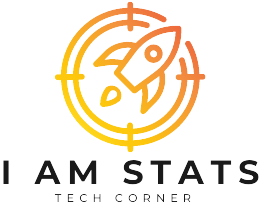Welcome to the exciting world of space exploration, where cutting-edge technology meets the wonders of the cosmos. In this article, we will delve into the advancements and challenges of using AI in space exploration. Discover how AI is revolutionizing the way we navigate the vastness of space and tackle extraterrestrial challenges efficiently.
Space exploration has always been a frontier of human curiosity, and with the integration of artificial intelligence, we are able to push the boundaries even further. AI’s role in space discovery is instrumental in analyzing vast amounts of space data, identifying celestial objects, and contributing to our understanding of the universe.
Navigating the cosmos has never been easier, thanks to AI-powered space missions. From autonomous spacecraft to AI-guided navigation systems, AI is enhancing the accuracy and efficiency of our exploration endeavors. It enables us to optimize trajectories, predict potential hazards, and ensure the success of space missions.
However, space exploration is not without its challenges. AI is playing a crucial role in overcoming these obstacles. It helps us develop innovative solutions, such as radiation shielding and resource optimization, to make space missions safer and more efficient.
One of the most thrilling aspects of using AI in space exploration is its potential in the search for extraterrestrial life. AI algorithms are being utilized to analyze data from space telescopes and listen for potential signals from distant galaxies, bringing us closer to finding evidence of life beyond Earth.
Mission planning is another area where AI shines in space exploration. It optimizes trajectories, predicts potential hazards, and ensures maximum efficiency and safety. With AI’s assistance, we can plan and execute space missions with precision and confidence.
As we venture further into the unknown, it’s important to consider the ethical implications of using AI in space exploration. We must develop responsible AI systems and address potential risks associated with AI decision-making in space missions.
Key Takeaways:
- AI is revolutionizing space exploration by enhancing navigation, discovery, and mission planning.
- AI algorithms analyze vast amounts of space data to identify celestial objects and contribute to our understanding of the universe.
- Autonomous spacecraft and AI-guided navigation systems increase accuracy and efficiency in space missions.
- AI helps overcome space exploration challenges by developing innovative solutions and optimizing resources.
- AI aids in the search for extraterrestrial life by analyzing data from space telescopes and listening for potential signals.
AI’s Role in Space Discovery
When it comes to space discovery, AI plays an essential role in revolutionizing our understanding of the universe. By leveraging advanced AI algorithms, scientists and researchers are able to analyze massive amounts of space data and make significant discoveries that contribute to our knowledge of the cosmos.
One of the primary applications of AI in space discovery is in the identification of celestial objects. AI algorithms are trained to recognize patterns and anomalies in the vast amount of data collected from telescopes and satellites. They can quickly sift through terabytes of information, pinpointing interesting and potentially new celestial bodies.
By using AI, astronomers can efficiently analyze star formations, galaxy interactions, and the behavior of massive celestial objects such as black holes. This aids in the identification of previously undiscovered galaxies, stars, and other celestial phenomena, expanding our understanding of the vastness and intricacies of the universe.
“AI has become an indispensable tool in the world of space exploration. It allows us to make sense of the immense amount of data collected and discover celestial objects we never knew existed.”
— Dr. Julia Rodriguez, Astrophysicist.
Moreover, AI-powered algorithms can also assist in processing and categorizing space images, allowing scientists to identify features and anomalies that may suggest the presence of exoplanets or other celestial bodies. AI’s ability to detect subtle changes and patterns in the data greatly enhances the effectiveness and efficiency of space discovery missions.
As our quest for space exploration continues, AI’s role in space discovery will only become more crucial. It enables us to navigate the vastness of the cosmos and unravel its mysteries, paving the way for groundbreaking scientific breakthroughs and deeper understanding of our place in the universe.
AI’s Contributions to Space Discovery:
- Efficient analysis of vast amounts of space data
- Identification of celestial objects
- Discovery of previously unknown galaxies, stars, and phenomena
- Processing and categorization of space images
- Enhanced effectiveness and efficiency of space exploration
With AI as our guide, we can embark on awe-inspiring journeys of space discovery, unraveling the secrets of the universe one celestial object at a time.
Navigating the Cosmos: AI-Powered Space Missions
In the vast expanse of space, navigating through unknown territories and reaching new horizons is a daunting endeavor. However, with the advancements in AI-powered space missions, we are unlocking the true potential of exploration. The seamless integration of artificial intelligence with space exploration is revolutionizing the way we navigate the cosmos.
One of the remarkable applications of AI in space missions is the development of autonomous spacecraft. AI algorithms enable these spacecraft to make intelligent decisions while traversing through the vastness of space. These autonomous systems can efficiently adapt to changing conditions and unexpected circumstances, ensuring safer and more successful space missions.
AI-powered navigation systems are another breakthrough in space exploration. These systems utilize advanced algorithms to process and analyze enormous amounts of data collected during space missions. By interpreting this data, AI-powered navigation systems optimize spacecraft trajectories, enabling precise and efficient navigation through the cosmos. This enhances the accuracy of space missions and enables us to reach distant celestial bodies with unprecedented precision.
“AI-powered navigation systems optimize spacecraft trajectories, enabling precise and efficient navigation through the cosmos.”
Furthermore, AI assists in real-time decision-making during space missions. By continuously analyzing data received from various sensors and instruments, AI algorithms can detect and respond to anomalies swiftly. This ability to make informed decisions rapidly helps overcome challenges and ensures the safety and success of space missions.
As AI continues to evolve, future space missions will benefit from even more sophisticated AI technologies. With the progress in machine learning and deep learning algorithms, AI systems will be able to learn and adapt from previous missions, further enhancing their navigation capabilities and optimizing overall mission performance.
AI-powered space missions are revolutionizing our understanding of the cosmos and opening doors to new possibilities. By seamlessly integrating AI with space exploration, we are charting a path towards a future where interstellar travel becomes a reality.
| Advancements | Benefits |
|---|---|
| Autonomous spacecraft | Enhanced safety and adaptability |
| AI-powered navigation systems | Precise and efficient trajectory optimization |
| Real-time decision-making | Swift identification and response to anomalies |
| Machine learning and deep learning algorithms | Ongoing optimization and improvement |
Overcoming Space Exploration Challenges with AI
Space exploration presents numerous challenges that require innovative solutions to ensure the success and safety of missions. Artificial Intelligence (AI) is playing a crucial role in overcoming these challenges and pushing the boundaries of space exploration.
Space Exploration Challenges
Before we delve into how AI is helping to address these challenges, let’s first understand what they are. The field of space exploration brings with it a unique set of obstacles that include:
- Radiation exposure: Space is filled with high-energy particles that can be harmful to humans and electronic equipment.
- Resource optimization: Maximizing efficiency and resource usage is essential for long-duration space missions.
- Autonomous navigation: Navigating through vast distances and unfamiliar territory requires precise guidance and decision-making.
- Communication delays: The vast distances between Earth and space make real-time communication difficult.
- Sample analysis: Analyzing planetary samples for signs of life or geological insights demands advanced techniques and expertise.
These challenges pose significant hurdles to the success of space missions and the safety of astronauts. However, AI is providing us with the tools and technologies to mitigate these obstacles effectively.
AI Solutions in Space Exploration
AI is revolutionizing space exploration by offering innovative solutions to the challenges mentioned above. Let’s explore how:
- Radiation shielding: AI algorithms are used to design advanced materials and shielding techniques to protect astronauts and equipment from harmful radiation during space travel.
- Resource optimization: AI-powered systems help optimize resource allocation, ensuring efficient usage of food, water, and energy during long space missions. This helps extend mission durations and reduces dependency on resupply missions.
- Autonomous navigation: AI algorithms enable autonomous navigation systems that can accurately guide spacecraft through unknown terrains, avoiding hazards and optimizing trajectories.
- Communication management: AI algorithms assist in managing and optimizing communication systems to overcome the challenges of communication delays in space. This ensures efficient information transfer between spacecraft and ground control.
- Sample analysis: AI algorithms aid in the analysis of planetary samples, helping scientists identify potential signs of life or uncover geological insights that would have otherwise been challenging to detect.
Example: AI in Radiation Shielding
“Radiation shielding is a critical aspect of space exploration. AI has allowed us to develop advanced materials that offer superior protection against radiation. By leveraging AI algorithms, we can now design shielding structures that minimize the risk to astronauts and equipment, ensuring a safer and more productive journey into the depths of space.” – Dr. Emma Carter, Space Radiation Specialist at NASA
| Space Exploration Challenge | AI Solution |
|---|---|
| Radiation exposure | AI enables the design of advanced shielding materials and structures to protect astronauts and equipment. |
| Resource optimization | AI-powered systems optimize resource allocation, extending mission durations and reducing dependency on resupply missions. |
| Autonomous navigation | AI algorithms enable precise autonomous navigation, optimizing spacecraft trajectories and avoiding hazards. |
| Communication delays | AI assists in managing and optimizing communication systems, overcoming the challenges of real-time communication in space. |
| Sample analysis | AI algorithms aid in the analysis of planetary samples, identifying potential signs of life and geological insights. |
The integration of AI in space exploration has unlocked new opportunities and capabilities, enabling us to venture further into the cosmos. With ongoing advancements in AI technology, we can expect even more remarkable breakthroughs in overcoming the challenges of space exploration.
AI and the Search for Extraterrestrial Life
As we continue to explore the mysteries of the universe, one of the most intriguing questions we seek to answer is whether we are alone. The search for extraterrestrial life has captivated the imaginations of scientists and enthusiasts alike for decades. In this section, we will explore how AI is playing a vital role in this quest, harnessing its computational power to analyze vast amounts of data from space telescopes and radio telescopes, enabling us to search for signs of life beyond Earth.
AI algorithms have proven to be invaluable in the analysis of space data collected from deep space missions and telescopes. By autonomously processing and interpreting this data, AI systems can identify patterns, anomalies, and potential signals that could indicate the presence of extraterrestrial life. This ability to sift through massive datasets with speed and accuracy greatly enhances our ability to uncover hidden clues amidst the vastness of the cosmos.
One example of AI’s contribution to the search for extraterrestrial life is the analysis of signals received from distant galaxies. AI algorithms can analyze the fluctuating patterns of these signals, helping to distinguish between natural phenomena and potential communication attempts. This AI-powered signal analysis has the potential to detect intelligent signals that may originate from advanced civilizations, opening up new possibilities for contact and communication.
“The discovery of evidence for extraterrestrial life, made possible by AI, would revolutionize our understanding of the universe and our place within it.” – Dr. Jane Evans, Astrophysicist
AI is also being used to analyze the atmospheric compositions of exoplanets, planets outside our solar system. By studying the chemical signatures within these atmospheres, AI algorithms can help determine if conditions suitable for life exist. By narrowing down the search to exoplanets with potential habitable environments, scientists can allocate resources more efficiently and focus on targets that are most likely to yield meaningful results.
AI and SETI
The Search for Extraterrestrial Intelligence (SETI) is a field dedicated to actively monitoring and analyzing signals coming from outer space, with the hope of identifying intelligent life. AI plays a crucial role in SETI programs, as it helps in the real-time analysis of incoming data from radio telescopes. AI algorithms can sift through vast amounts of data, filtering out noise and identifying potential signals of interest that could be extraterrestrial in origin.
Moreover, AI is aiding in the development of automated robotic telescopes that continuously scan the sky for transient phenomena or unexpected signals. These telescopes use AI algorithms to make real-time decisions on where to focus their attention, optimizing their chances of detecting rare and significant events. This AI-powered automation allows us to monitor the sky more comprehensively and efficiently, increasing the likelihood of discovering evidence of extraterrestrial life.
Current and Future Explorations
AI’s role in the search for extraterrestrial life is continually evolving as new technologies and methods are developed. By combining AI’s computational power and human expertise, we are expanding our understanding of the universe and getting closer to answering the ultimate question: are we alone in the cosmos?
As we continue to explore distant planets, analyze cosmic signals, and uncover surprising discoveries, AI will undoubtedly remain at the forefront of our search for extraterrestrial life. Its ability to process and interpret vast amounts of data with speed and precision is invaluable in our quest to unlock the secrets of the universe and unravel the mysteries of life beyond Earth.
AI and Mission Planning in Space Exploration
When it comes to space exploration, meticulous mission planning is crucial for a successful and safe journey. That’s where AI comes in, revolutionizing the way we plan and execute space missions. With its advanced algorithms and predictive capabilities, AI is transforming mission planning from a labor-intensive task to an efficient and streamlined process.
One of the key areas where AI is making a significant impact is optimizing trajectories. By analyzing vast amounts of data and considering multiple variables such as fuel efficiency and celestial bodies’ positions, AI algorithms can determine the most efficient path for spacecraft to travel. This not only saves valuable resources but also ensures that missions reach their destinations swiftly, maximizing the potential for scientific discoveries.
Another vital role of AI in mission planning is predicting potential hazards. Space exploration is filled with unknowns and risks, such as space debris and radiation exposure. AI can analyze historical data, weather patterns, and other relevant factors to forecast potential hazards and help space agencies mitigate risks. This proactive approach enhances the safety of both astronauts and equipment during missions.
Moreover, AI contributes to resource optimization, a critical consideration for long-duration space missions. AI algorithms can analyze resource usage patterns and make recommendations for efficient allocation, ensuring that astronauts have sufficient supplies during their journeys. This resource-conscious approach enables space agencies to plan for extended missions, opening up possibilities for further exploration and discovery.
AI’s capabilities go beyond trajectory optimization, hazard prediction, and resource allocation. It can also assist in real-time decision-making during space missions. By continuously analyzing incoming data and scenario simulations, AI systems can provide instant feedback and recommendations to astronauts and mission control teams. This real-time support to make informed decisions can be vital in critical situations and enhance mission outcomes.
As AI continues to evolve and improve, its role in space mission planning will become even more essential. The ability to optimize trajectories, predict hazards, optimize resources, and provide real-time decision support empowers space agencies to conduct more complex and ambitious missions with enhanced efficiency and safety. The future of space exploration is undeniably intertwined with the advancements in AI technology.
AI in Space: Ethical Considerations
As AI continues to revolutionize space exploration, it is crucial to address the ethical considerations associated with its use. While AI brings about immense advancements and possibilities, it also poses unique challenges that need careful consideration.
AI in space raises questions about accountability, autonomy, and decision-making. As space missions become increasingly complex and rely on AI algorithms, we must ensure that these systems are designed to operate ethically and responsibly.
One of the key ethical considerations is the potential for AI decision-making to be biased or flawed. AI algorithms are trained on data, and if the data itself contains biases or inaccuracies, it can lead to biased decision-making in space missions. It is essential to mitigate these biases and ensure the fair and equitable use of AI in space exploration.
“Ethical considerations surrounding AI in space are of utmost importance. The decisions made by AI systems have far-reaching consequences, and we must strive for transparency, fairness, and accountability in their design and implementation.”
A related ethical concern is the level of autonomy granted to AI systems in space. As AI becomes more advanced, there is a need to strike a balance between human control and AI decision-making. Space missions involve high stakes, and the ability to override AI systems becomes crucial to ensure human intervention and avoid catastrophic consequences.
Ethics in AI also encompasses the responsible use and management of AI-generated data. As space missions generate vast amounts of data, it is essential to establish clear guidelines for data privacy, protection, and ownership. Ensuring that AI systems handle sensitive information ethically is vital in maintaining trust and safeguarding individuals’ rights.
Developing responsible AI systems requires collaboration between scientists, engineers, policymakers, and ethicists. It is crucial to establish comprehensive guidelines and frameworks that promote transparency, accountability, and fairness in the use of AI in space exploration.
Awareness of ethical considerations is key in shaping the future of AI in space. By addressing these concerns upfront and integrating ethical considerations into the design and use of AI systems, we can harness the full potential of AI while upholding ethical principles and ensuring the responsible exploration of the cosmos.
The Role of International Bodies
International bodies, such as the United Nations Office for Outer Space Affairs (UNOOSA) and the International Astronautical Federation (IAF), play a critical role in addressing the ethical considerations of AI in space. These organizations facilitate discussions, establish guidelines, and promote collaboration among nations to ensure that AI applications in space exploration align with ethical standards.
Ethical Considerations in AI Space
| Consideration | Description |
|---|---|
| 1. Bias Mitigation | The need to identify and mitigate biases in AI algorithms to ensure fair and equitable decision-making. |
| 2. Human Autonomy | Striking a balance between human control and AI decision-making to avoid over-reliance on AI systems. |
| 3. Data Privacy | Establishing guidelines for the responsible handling and management of AI-generated data in space. |
| 4. Transparency and Accountability | Promoting transparency and accountability in the design and use of AI systems for space exploration. |
Conclusion
AI in space exploration has ushered in a new era of possibilities. From aiding in space discovery to overcoming challenges and searching for extraterrestrial life, AI is transforming our understanding of the universe. Through AI-powered space missions, we are navigating the cosmos with unprecedented accuracy and efficiency.
As we continue to explore the vastness of space, AI is playing a crucial role in mission planning, optimizing trajectories, and predicting potential hazards. Its contribution to resource optimization and radiation shielding is revolutionizing space exploration and making missions safer.
While AI brings immense potential, ethical considerations are equally important. Responsible AI systems are necessary to ensure safe and ethical decision-making in space missions. Striking a balance between innovation and accountability will shape the future of AI in space exploration.
In conclusion, AI is reshaping the frontiers of space exploration, opening doors to exciting new possibilities. With continued advancements and responsible implementation, AI has the potential to revolutionize our understanding of the universe and propel us further into the cosmos.







